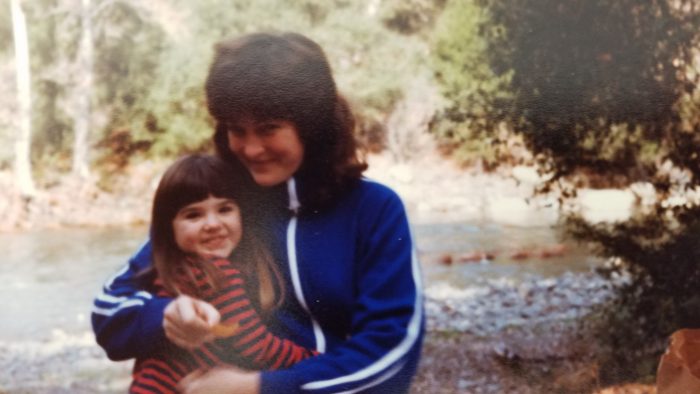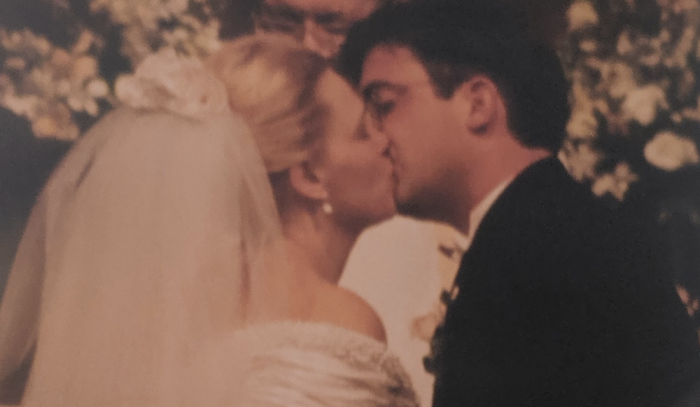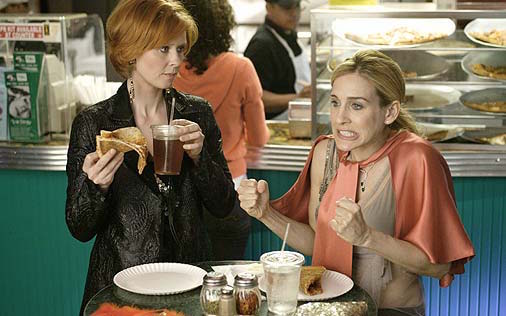When I went off to college 500 miles from home, my mom started to fall apart.
She relied on me, the eldest child with 10 years’ difference between me and my youngest sibling, for housecleaning, babysitting, diapers, and even as her own sounding board for adult decisions. She frequently called crying and begging me to quit school and move back home.
By the end of my freshman year, she was seeing a therapist and on antidepressants. By the end of my sophomore year, she was taking increasingly higher doses of meds and overdosed twice on purpose.
By the start of my junior year, she had decided to divorce my stepdad, who used her
suicide attempts to gain legal custody of their two kids. The more she lost, the deeper she fell into depression and the heavier she used medications to cope.
By Thanksgiving, she’d made five suicide attempts. I came home to find a shell of the mom I grew up with, once light-hearted and charismatic, now unable to connect her train of thoughts in complete sentences. I resented her for changing so drastically.
I was sitting in the living room of her new apartment searching for airline flights to come home for Christmas when we got into an argument over costs and airport locations. The following morning, she dropped me off at John Wayne airport.
“I love you,” she said, as she tried to hug me goodbye.
I pushed her arms away and avoided eye contact as I lugged my bag past the sliding glass doors into the air-conditioned check-in area.
For the next two weeks, she called me daily and I sent her to voicemail. Her messages were a jumbled mess of intoxicated words and stuttering. Simply listening to them made me tense.
The weekend before final exams, I buried myself in textbooks and notes. My mom had stopped calling my cell phone and started calling my apartment. When my roommates told me she was on the phone, I told them to tell her I was busy and would call back when I had time.
At some point, my roommate Cindy dropped the phone in my lap and said, “Just talk to her already!”
“Fine,” I said and held the phone to my ear. “What?!”
“Ww-w-w-w-w-hy are y-y-y-you m-m-m-mad at me?” Mom asked.
“You seriously don’t know?”
“C-c-can’t we j-j-j-just t-t-t-alk about it?”
“I don’t want to get into this right now,” I said. “I have finals and I need to pass."
“B-b-but—”
“I can’t right now, Mom,” I said. “I’ll call you when finals are done.”
“J-j-j-just know th-th-th-that I l-l-l-love you.”
“Bye.” I hung up.
Two days later, I was at my desk receptionist job when my mother’s sisters appeared in the lobby. My eyes furrowed with confusion, and I tilted my head to the side as I stood up to greet them.
Aunt Terry knocked on my boss’s open door. “We need to use your office,” she said. “It’s important.”
By then, I was standing between them. “What’s wrong?”
“We have some bad news.” My aunt Kathy’s voice cracked. I knew.
“
Nooooooooooooooooooo!!!!!!!!!” It was a guttural cry that exploded from the deepest part of my core. My aunts both caught me as my legs went completely limp. My body felt like gravity wanted to grind me into the earth. And I
couldn’t stop screaming.
They carried me to a couch, sandwiched me between them, and cried with me.
Eventually the sobbing subsided and my body felt numb and disconnected. I think my aunts explained what happened, but their words didn’t register. It sounded like they were talking underwater.
I only have random flashes of memory about the days following. I remember crying in my apartment with my roommates, and of my father flying in from Maui with my stepmom and their two kids. I think he organized our flights to the funeral.
I remember her closed-lid casket, covered in grey felt, in a dark chapel. I was told the overdose caused her eyes and ears to burst, and that it was better no one saw.
I bawled while my body lay over the top of it, as heavy as when I first found out she was gone. I felt as though I would never be able to pull myself away.
I remember my mom’s best friends crying, speaking at her service. Both asked, “Why didn’t she call me? Why didn’t she call someone!?”
I was that someone. She had called me. And I was sure her death was my fault.
Almost a year later, my stepfather decided to sue my mother’s doctors for malpractice. She’d had two, and both had prescribed antidepressants. She was definitely overmedicated, yet the details on how and why remained muddy.
As part of the proceedings, I was called as a witness. My attorney asked questions that allowed me to speak to the sharp decline I’d seen in my mother since she started therapy.
Then the defense attorney began his cross-examination. He focused his questions on our interactions leading up to her death.
“So you were arguing with your mom and ignoring her phone calls,” the attorney stated, “even though you knew she was depressed and had had five suicide attempts.”
“Yes.”
“And in the morning of question, she called you and you essentially hung up on her.”
“Yes.”
The lawyer handed me a piece of paper. It was a time report of when and how long our phone call lasted.
“Is it accurate to say your call started at 9:05 a.m. and ended a few minutes later?”
“I don’t recall exactly, but if this is the report, then yes.”
He handed me another piece of paper. It was the coroner’s report with the estimated time of death highlighted.
“And what date and time does that say in the highlight?”
“It says December 5, 1999 at 9:30 a.m.” I had known she died the day we spoke, but I didn’t know until this moment when. I stared at the time to make sure I read it accurately and wishing it to be different—later…much, much later.
“So is it safe to say that if she’d called one of her therapists, like she had done in her previous attempts, instead of you, that she’d still be alive?”
“Objection!”
“Withdrawn.”
I’d already blamed myself for her death. Now here was a person in power confirming my worst nightmare.
The court sided with the defense, and my stepfather lost the lawsuit. In my mind, that was a triple confirmation of blame and that I should be punished.
That punishment came in a variety of unhealthy relationships, even with myself. I left hateful post-it notes for myself on mirrors, including messages like, “You stupid bitch!”
I allowed myself to be duped by a con artist, who scammed me out of thousands of dollars and purchased a $150,000 Mercedes in my name. Drowning in debt and panic attacks, I foreclosed on my house and filed bankruptcy.
I pushed loving people away and brought hurtful people in. When I met kind and compassionate men, I sabotaged any hope of happiness before romance could take root.
And then, after 11 years of self-inflicted pain and suffering, Grace swooped in, held me, and refused to let go.
It was December of 2010. I was driving from Northern to Southern California listening to the new Lady Antebellum CD. A song came on called “Ready to Love Again.” I had just hit the open stretch of the I-5, and I let it rip. Volume up, gas pedal down.
The words reached into my heart and cracked it wide open. I cried a heavy release of all the junk. My chest convulsed as sobbing came in crashing waves. Then I put the song on repeat for the remaining five hours. With each play, I felt into the words and let Grace pull my spirit out to the surface, while the tears took my pain like a riptide out to sea.
As I neared my hometown, I felt like my whole body had expanded. I told a higher power, “I am ready to love me again.”
Even though it would take many more years of healing in layers and changing mental patterns, my life took a big shift because I made the decision to forgive myself and my mother.
I let the light back in. I found my way back to myself. Now, I’m honored to help others through their grieving journey.
If it weren’t for that experience, I couldn’t know the depths of pain people feel in grief. I also wouldn’t fully grasp the heights of elation if not for that benchmark. And I wouldn’t be the professional healer that I am now.
This vocation brings me so much joy, fulfillment, and purpose. For that I’m grateful.
~





